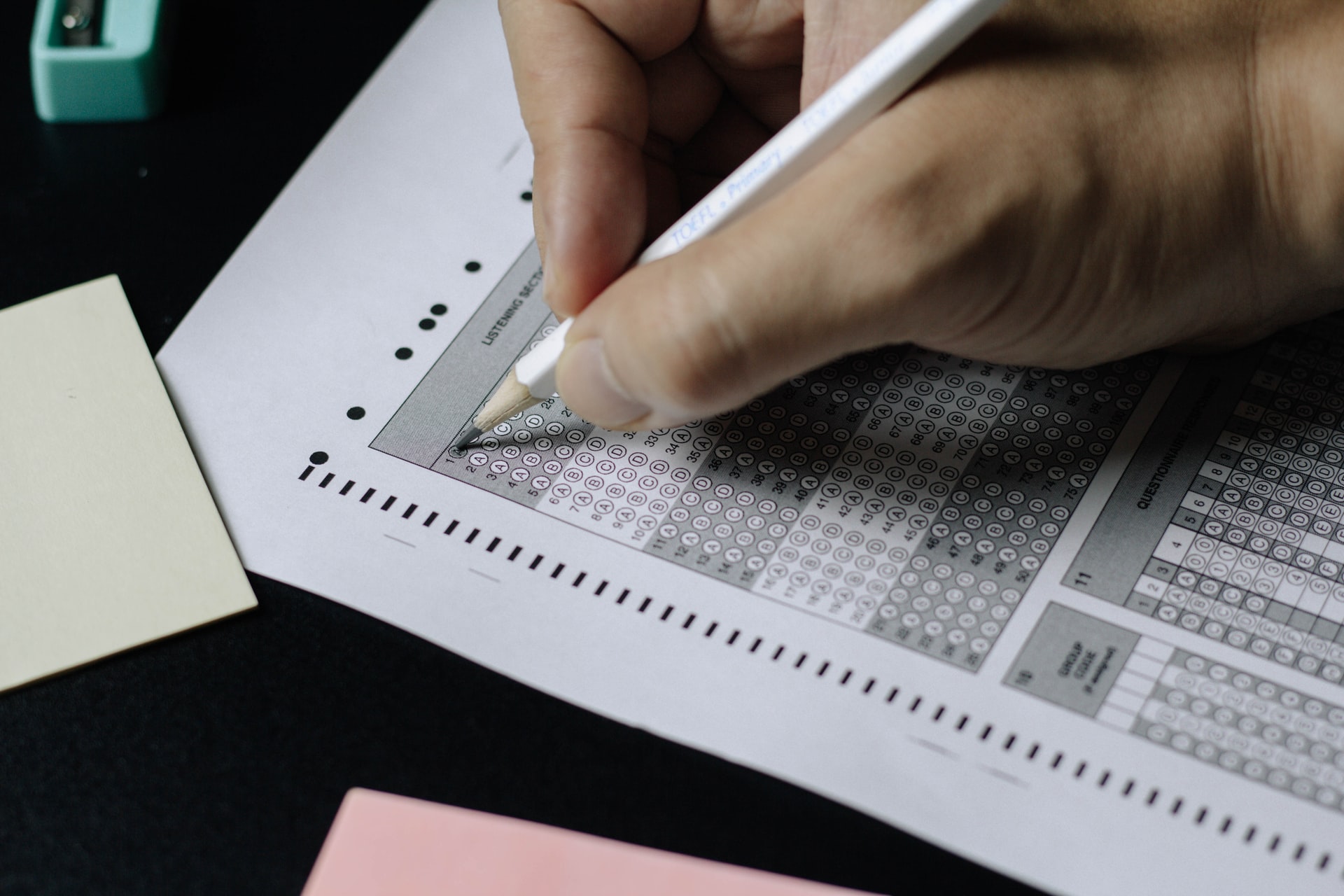Whether or not to use personality tests for jobs is the ultimate digital workplace question.
Modern personality tests are pretty incredible and powerful tools. But how much hiring authority are we ready to give to the system? If the algorithm says someone is the perfect candidate, but we’ve got a weird feeling, is that our own bias that needs to be weeded out, or is that smart human intuition?
Or what if all the signals about a candidate point to no, but we feel like there’s a spark that goes beyond the assessment’s ability to judge?
Modern digital workplaces often use some kind of personality test, but there’s a lot of questions.
How much should you rely on them? Which personality tests should I use? Are there pitfalls? Are there upsides? Can they really help? Can you help someone become a better employee even if they aren’t great on the personality test?
Do personality tests for jobs really matter?
You might be wondering if personality tests for jobs are inconsequential. To some degree, they might be. Even an entire HBO series pinpoints how they are discriminatory against certain individuals.
But then again, what other choice do you have? Is it in your team’s best interest to ignore them completely?
The argument for personality tests
Personality tests can examine what a person brings to the table outside of their experiences and expertise. While you can certainly gather this information during an interview, it’s all about narrowing the talent pool. And that’s what makes these tests so important.
Perhaps it’s not so much about the tests themselves. But in a hiring process that can easily cost you thousands of dollars, cutting down the shortlist is advantageous in its own right.
Plus, personality tests can give you insight if the person is the right fit for a role. For example, some people’s personality isn’t’ a good fit for repetitive tasks, despite what they might say.
Despite its rather statistical analysis and data-driven ideas, a personality test will give you a feel for someone’s natural abilities and affinities. That’s a huge relief in the digital workplace when you can’t meet people face-to-face except for a computer screen.
The argument against personality tests
Hiring is a crapshoot, isn’t it? A candidate can have all the right experience and an impressive resume, yet they may not be the go-getter, team player, or hard worker you want.
So what makes a personality test for jobs so much better?
Critics would probably say nothing. Many candidates go the route of “what the employer wants to hear” rather than honesty. Furthermore, cheaper or free tests don’t provide the results that proven tests can. With a monetary link to upper-tier personality tests, do you want to spend the money? Or do you want to roll the dice?
Look at sports, where analytics run wild. Sometimes the #1 pick is a bust, and the best player is an undrafted grocery store clerk. Or baseball still seems to be up in the air between judging between players who have un-documented “good stuff” and those that bring the hard stats.
It’s still unclear whether or not personality tests for jobs will make you more or less discriminatory. Some tests automatically elevate those who were brought up among demographics that are used to privilege. But others might elevate candidates that you would have never considered but still have the raw skills for the job.
What personality tests for jobs are the “good ones?”
The personality test for jobs business has become a fruitful one. It currently generates over $500 million annually, a testament to its popularity with employers medium, small, and large.
But with all the free and pay options, which ones are the good ones? There’s no straight answer. However, here are some you might consider.
The Predictive Index
The Predictive Index Cognitive Assessment (PICA) and the Predictive Index Behavioral Assessment (PIBA) are two popular tests that have come into favor with major employers.
Created in 1955 but updated for modern candidates, these tests have been backed by a large volume of scientific study. They measure personality characteristics and abstract intelligence to define if a person is a good fit in terms of patience, collaboration, and dominance vs. passiveness.
We’ve had four guests come on who all love what The Predictive Index can do: Nick Smarrelli, Swati Doshi, Heather Haas, and Chris Byers.
The beauty of the assessment is that it’s just two questions. There’s a list of about 60 adjectives and you choose all the ones that describe the way you are expected to act by others at work, and then those that you believe really describe you as you are.
Some assessments can take hours to complete, but The Predictive Index is only about 10 minutes, and generates some impressive results just out of that.
Caliper
Kelly Gliatta from Workwave highly recommends Caliper as a great tool for assessing people before hiring.
At the end, it gives us a really great sense of their sociability, how much they love to manage their day, or have somebody else manage their day, how much they love to problem solve, their sense of urgency, it’s really fascinating. And it’s all just kind of how somebody is at home on the weekend by themselves, it’s not their work, it’s truly who they are at their core.
Myers-Briggs
An oldie but a goodie, the Myers-Briggs test remains one of the most administered personality tests for jobs. Despite its relative repetitiveness in the scope and type of question, it essentially makes a strong decision about what potential candidates’ strengths and weaknesses are.
According to Myers-Briggs, its test make a distinction between these starkly contrasting ideas:
- Judging vs. perceiving
- Thinking vs. feeling
- Sensing vs. intuition
- Extroversion vs. introversion
Basically, this old-school approach to personality hits every nail on the head. If you believe in a more old-school approach, Myers-Briggs is certainly it.
StrengthsFinder
StrengthsFinder isn’t necessarily a personality test for jobs, but it can show you where someone’s natural strengths lie. It’s a great tool that opens up more discussions about the right blend of people on your team. If everyone has all the same strengths, you’ll likely have some key areas that you are missing.
StrengthsFinder will identify which of a set of 30+ strengths best fits your working style and then give you tips on how you can play into those strengths as opposed to just trying to shore up the ones you aren’t naturally good at.
Enneagram
Shout out to all the millennials out there. The Enneagram also would not call itself a personality test, but it is a mainstay of popular culture now. Knowing someone’s Enneagram number is often a quick way to categorize the type of person they are and what motivates them. You don’t see it applied on mass scales in the business world, but it can still be a good tool for smaller teams.
One of the best outcomes of the Enneagram is that it builds a lot of empathy. Rather than wondering why someone isn’t acting exactly like you want them, the Enneagram can shine some light on differences and help you appreciate them. It’s also one of the few personality tests for jobs that is dynamic, meaning that it acknowledges that your personality and actions will change when you are in stress, or in great health.
MyPlan.com
If you don’t have much expendable income for personality tests for jobs at your company, MyPlan.com’s free personality assessment works nicely into your budget. Rated one, if not the best, free personality test, this one is based on the ideas of Carl Jung and all of his research and ideas.
It’s similar to the Myers-Briggs test in question quality and similarity, yet at the end of the day it assesses and categorizes 16 personality types. The only thing to do from there is to see if that particular personality fits into your company culture.
Personality tests for jobs aren’t the be-all, end-all
Without in-person interviews, the digital workplace and its hiring processes aren’t quite the same. You’re going on credentials; you’re going on instinct. But if you’re ever on the fritz about a particular candidate, personality tests are a stellar way to pick the gem out of the pig iron.
But don’t forget about your intuitiveness, experience, and gut feeling.
Candidates may all look the same from a distance. But with that little extra touch of a personality test and your own instinct, you can narrow down your shortlist and find the right person for the job.
Photo by Nguyen Dang Hoang Nhu on Unsplash
Whether or not to use personality tests for jobs is the ultimate digital workplace question.
Modern personality tests are pretty incredible and powerful tools. But how much hiring authority are we ready to give to the system? If the algorithm says someone is the perfect candidate, but we’ve got a weird feeling, is that our own bias that needs to be weeded out, or is that smart human intuition?
Or what if all the signals about a candidate point to no, but we feel like there’s a spark that goes beyond the assessment’s ability to judge?
Modern digital workplaces often use some kind of personality test, but there’s a lot of questions.
How much should you rely on them? Which personality tests should I use? Are there pitfalls? Are there upsides? Can they really help? Can you help someone become a better employee even if they aren’t great on the personality test?
Do personality tests for jobs really matter?
You might be wondering if personality tests for jobs are inconsequential. To some degree, they might be. Even an entire HBO series pinpoints how they are discriminatory against certain individuals.
But then again, what other choice do you have? Is it in your team’s best interest to ignore them completely?
The argument for personality tests
Personality tests can examine what a person brings to the table outside of their experiences and expertise. While you can certainly gather this information during an interview, it’s all about narrowing the talent pool. And that’s what makes these tests so important.
Perhaps it’s not so much about the tests themselves. But in a hiring process that can easily cost you thousands of dollars, cutting down the shortlist is advantageous in its own right.
Plus, personality tests can give you insight if the person is the right fit for a role. For example, some people’s personality isn’t’ a good fit for repetitive tasks, despite what they might say.
Despite its rather statistical analysis and data-driven ideas, a personality test will give you a feel for someone’s natural abilities and affinities. That’s a huge relief in the digital workplace when you can’t meet people face-to-face except for a computer screen.
The argument against personality tests
Hiring is a crapshoot, isn’t it? A candidate can have all the right experience and an impressive resume, yet they may not be the go-getter, team player, or hard worker you want.
So what makes a personality test for jobs so much better?
Critics would probably say nothing. Many candidates go the route of “what the employer wants to hear” rather than honesty. Furthermore, cheaper or free tests don’t provide the results that proven tests can. With a monetary link to upper-tier personality tests, do you want to spend the money? Or do you want to roll the dice?
Look at sports, where analytics run wild. Sometimes the #1 pick is a bust, and the best player is an undrafted grocery store clerk. Or baseball still seems to be up in the air between judging between players who have un-documented “good stuff” and those that bring the hard stats.
It’s still unclear whether or not personality tests for jobs will make you more or less discriminatory. Some tests automatically elevate those who were brought up among demographics that are used to privilege. But others might elevate candidates that you would have never considered but still have the raw skills for the job.
What personality tests for jobs are the “good ones?”
The personality test for jobs business has become a fruitful one. It currently generates over $500 million annually, a testament to its popularity with employers medium, small, and large.
But with all the free and pay options, which ones are the good ones? There’s no straight answer. However, here are some you might consider.
The Predictive Index
The Predictive Index Cognitive Assessment (PICA) and the Predictive Index Behavioral Assessment (PIBA) are two popular tests that have come into favor with major employers.
Created in 1955 but updated for modern candidates, these tests have been backed by a large volume of scientific study. They measure personality characteristics and abstract intelligence to define if a person is a good fit in terms of patience, collaboration, and dominance vs. passiveness.
We’ve had four guests come on who all love what The Predictive Index can do: Nick Smarrelli, Swati Doshi, Heather Haas, and Chris Byers.
The beauty of the assessment is that it’s just two questions. There’s a list of about 60 adjectives and you choose all the ones that describe the way you are expected to act by others at work, and then those that you believe really describe you as you are.
Some assessments can take hours to complete, but The Predictive Index is only about 10 minutes, and generates some impressive results just out of that.
Caliper
Kelly Gliatta from Workwave highly recommends Caliper as a great tool for assessing people before hiring.
At the end, it gives us a really great sense of their sociability, how much they love to manage their day, or have somebody else manage their day, how much they love to problem solve, their sense of urgency, it’s really fascinating. And it’s all just kind of how somebody is at home on the weekend by themselves, it’s not their work, it’s truly who they are at their core.
Myers-Briggs
An oldie but a goodie, the Myers-Briggs test remains one of the most administered personality tests for jobs. Despite its relative repetitiveness in the scope and type of question, it essentially makes a strong decision about what potential candidates’ strengths and weaknesses are.
According to Myers-Briggs, its test make a distinction between these starkly contrasting ideas:
- Judging vs. perceiving
- Thinking vs. feeling
- Sensing vs. intuition
- Extroversion vs. introversion
Basically, this old-school approach to personality hits every nail on the head. If you believe in a more old-school approach, Myers-Briggs is certainly it.
StrengthsFinder
StrengthsFinder isn’t necessarily a personality test for jobs, but it can show you where someone’s natural strengths lie. It’s a great tool that opens up more discussions about the right blend of people on your team. If everyone has all the same strengths, you’ll likely have some key areas that you are missing.
StrengthsFinder will identify which of a set of 30+ strengths best fits your working style and then give you tips on how you can play into those strengths as opposed to just trying to shore up the ones you aren’t naturally good at.
Enneagram
Shout out to all the millennials out there. The Enneagram also would not call itself a personality test, but it is a mainstay of popular culture now. Knowing someone’s Enneagram number is often a quick way to categorize the type of person they are and what motivates them. You don’t see it applied on mass scales in the business world, but it can still be a good tool for smaller teams.
One of the best outcomes of the Enneagram is that it builds a lot of empathy. Rather than wondering why someone isn’t acting exactly like you want them, the Enneagram can shine some light on differences and help you appreciate them. It’s also one of the few personality tests for jobs that is dynamic, meaning that it acknowledges that your personality and actions will change when you are in stress, or in great health.
MyPlan.com
If you don’t have much expendable income for personality tests for jobs at your company, MyPlan.com’s free personality assessment works nicely into your budget. Rated one, if not the best, free personality test, this one is based on the ideas of Carl Jung and all of his research and ideas.
It’s similar to the Myers-Briggs test in question quality and similarity, yet at the end of the day it assesses and categorizes 16 personality types. The only thing to do from there is to see if that particular personality fits into your company culture.
Personality tests for jobs aren’t the be-all, end-all
Without in-person interviews, the digital workplace and its hiring processes aren’t quite the same. You’re going on credentials; you’re going on instinct. But if you’re ever on the fritz about a particular candidate, personality tests are a stellar way to pick the gem out of the pig iron.
But don’t forget about your intuitiveness, experience, and gut feeling.
Candidates may all look the same from a distance. But with that little extra touch of a personality test and your own instinct, you can narrow down your shortlist and find the right person for the job.
Photo by Nguyen Dang Hoang Nhu on Unsplash
)
)
)







